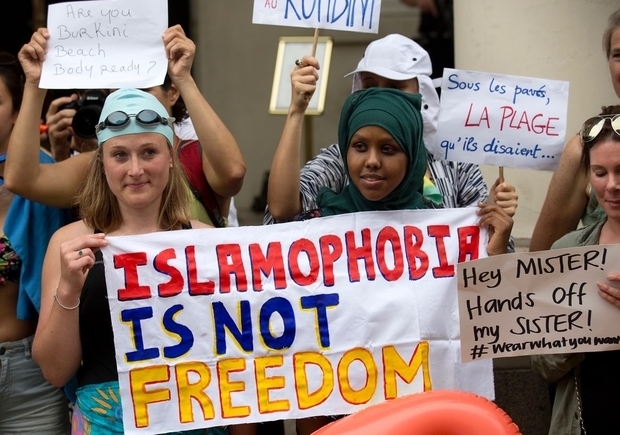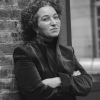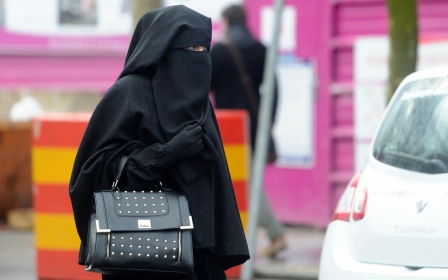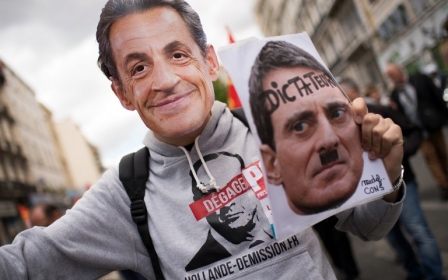No liberty, no equality, no fraternity: The death of French secularism

In Nice, less than a month after the Bastille Day attack on the Promenade des Anglais, which killed 86 people and was claimed by the Islamic State group, something quite odd happened. The city mayor, like mayors in many other towns on the French Riviera, issued an order to ban the wearing of burkinis. This decree targets a piece of non-revealing swimwear worn by some Muslim women when they go to the beach.
The Organisation Against Islamophobia in France and the Human Rights League have both deemed this decree to be discriminatory and oppressive, and have brought a case before the Administrative Court of Nice to have it annulled.
They did not succeed in this attempt, and the Administrative Court decided to ban, once again, the burkini from the beach at Cannes and Villeneuve-Loubet, on 13 August and 22 August respectively, explaining that “it was necessary, logical and commensurate” given the post-attack climate prevailing in the region.
The two human rights organisations decided to bring their case before the French Council of State, the ultimate authority on administrative law cases. On 25 August, the council revoked the decree in Villeneuve-Loubet, declaring that the "contentious and illegal decree severely undermined fundamental freedoms”.
In what can be seen as an act of rebellion, even sedition, several mayors have now disowned the council’s decision and refused to lift their burkini bans. This stand-off shows that some elected politicians are prepared to see a change to the laws that safeguard citizens' rights in France, even when the highest administrative court in the land warns such anti-burkini decrees imperil fundamental freedoms gauranteed by the Republic's constitution, the founding texts of French law.
Religious neutrality is mandatory
Article 2 of the French constitution enshrines equality before the law for all, without distinction as to origin, race, and religion. All creeds are equally respected.
Article 10 of the 1789 Declaration of the Rights of Man and of the Citizen guarantees equality of opinions, even religious ones.
The 1905 law on the separation of the church and the state says: “The Republic ensures freedom of conscience and guarantees the free practice of religions ...” Here, secularism clearly means that the state has to be 100 percent neutral when it comes to churches and acts of worship. Yet, a century later, that definition has shifted and secularism now means that citizens have to be seen to be religiously neutral when out in public spaces.
The term secularism is hotly and widely used when it comes to French Muslim citizens. The burkini issue recalls a similar case that happened in 1989, commonly known as the "affaire des foulards” in Creil, northern France. In October of that year, the head teacher of Creil's Gabriel Hafez middle school denied access to three girl students who were wearing the hijab headscarf. At that time, the Socialist party’s Lionel Jospin was minister of national education and asked the French Council of State to settle the pending litigation.
The Conseil des Sages (the nickname given to the council) established that wearing the hijab was not inconsistent with the principle of secularism.
Dissatisfied with the council’s conclusion, many politicians continued fighting for a law that would prohibit the wearing of religious symbols, especially the hijab, based on a biased vision of secularism. This culminated in a legislation, passed in March 2004 under the presidency of Jacques Chirac, to prohibit employees and students in public schools from wearing conspicuous religious symbols.
History gives us a fresh perspective. As in the “affaire des foulards” case, the burkini bans signal an ever increasing exclusion and stigmatisation of Muslim women in France. All in the name of secularism, which is supposed to let them practice their religion freely.
‘No Jews or dogs allowed’
Just as 12 years ago, stigmatising Muslim women who wear the hijab inevitably leads to clashes, islamophobic acts and can serve to liberate and legitimise racist speech. That is why video footage, released last weekend has caused outrage. It shows two women being thrown out of a restaurant in Tremblay-en-France, a Paris suburb, where the owner allegedly made racist comments, including: “All Muslims are terrorists.”
The current state of emergency in France has meant such paranoid statements are no longer the discourse of the right-wing, and constitutional secularism has been perverted, and used to segregate citizens into the legitimate ones, who may enjoy common law, and the illegitimate ones, who have to defer to specific laws.
Since the Creil case, specific laws are being applied to: Muslim women who wear the hijab; a ban on wearing conspicuous religious symbols at school; a ban on wearing the niqab in public; a proposal for a ban on Muslim nannies wearing their hijab at home while looking after children; a ban on Muslim mothers accompanying children on school trips; and, latest of all, this ban on wearing burkinis at the beach.
What is happening in France is serious and dangerous. Politicians are isolating and stigmatising a whole chunk of the French population because of their faith.
The Office of the United Nations High Commissioner for Human Rights has now said that “the bans do not aid security and fuel religious intolerance and the stigmatisation of Muslims, especially Muslim women”.
France's Jewish Association for Peace is not afraid to compare how the Republic is treating Muslims today to the way its Jews were treated during the Nazi occupation. The fact that Muslims are banned from some public places reminds us of a time when signs reading “No Jews or dogs allowed” were placed at the entrance to parks, restaurants and coffee shops.
When elected politicians plead that wearing the hijab is a provocation, or that they are indeed protecting women and public order against islamic proselytism through these banning orders, it is pure nonsense. What is actually happening is a sexist and islamophobic segregation that is seeking legal justification.
Becoming invisible
Muslim women have been sidelined, humiliated, called “negroes” and compared to slaves who enjoy “being enslaved” by Laurence Rossignol, the French minister for women's rights, and conflated with Islamist activists by French premier Manuel Valls.
France, a birthplace of “human rights,” has failed in its egalitarian mission by not keeping its promises and not applying its principles. No liberty, no equality and no fraternity: instead, government after government, has marginalised religious and ethnic minorities, denying them equal status in the nation.
The state itself has to make sure there is equality. It is not up to each single citizen to prove that they deserve to enjoy common law or they are able to blend in. But what does blending in mean for people who have always been living in France?
The burkini case illustrates France's growing identity crisis. It also happens to be a serious case of denial of democracy that needs to be condemned. Secularism is dead. It has been dead from the moment that elected politicians used it to exclude, stigmatise and revoke rights that secularism is supposed to protect. In its place is a new standard of national purity, in which Muslim women are expected to be invisible.
Hanane Karimi is a sociologist and doctorate in sociology at Strasbourg University, the European laboratory of social dynamics. Her thesis is about the ‘agency’ of French Muslim women in the context of ‘new secularism’. She has a Master's degree in Ethics (Centre for Research in Ethics - France). Graduate from the Yale Bioethics Center, she provides training on transcultural medical ethics and on secularism. Hanane Karimi is also a feminist and anti-racist activist.
The views expressed here are those of the author and should not be seen as an official position of the Middle East Eye editorial policy.
Photo: demonstrators are holding up placards stating ‘islamophobia doesn’t mean freedom’, in front of the French Embassy in London last week during the ‘Wear what you want to the beach party’ demonstration against the ban on ‘burkinis’ in France, and to show support to the French Muslim women (AFP).
This story originally ran on MEE's French website and is translated by Nassima Demiche.
New MEE newsletter: Jerusalem Dispatch
Sign up to get the latest insights and analysis on Israel-Palestine, alongside Turkey Unpacked and other MEE newsletters
Middle East Eye delivers independent and unrivalled coverage and analysis of the Middle East, North Africa and beyond. To learn more about republishing this content and the associated fees, please fill out this form. More about MEE can be found here.





